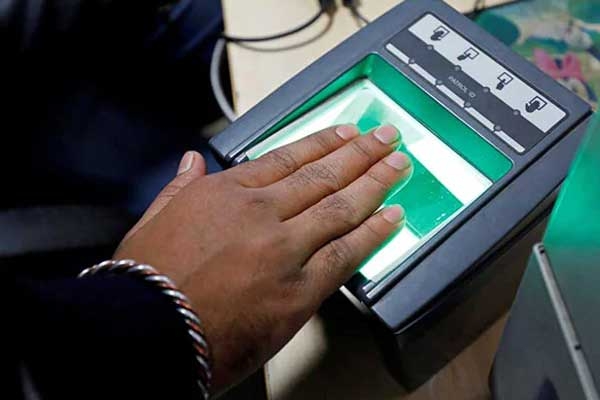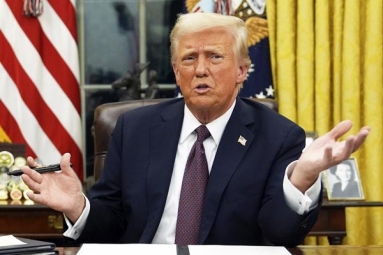Aadhar Verdict Balanced, Govt. Needs to Pass Privacy Law: U.S. Experts
September 27, 2018 09:44
(Image source from: NDTV.com)
A day after Aadhar verdict in India, the United States based experts said that Supreme Court's verdict has struck a balance between the need for a foundational identity and measures to bound its use, but stressed that the government at present urgently needs to pass a legislation on data privacy and sharing.
The Aadhar project was earlier launched by previous United Progressive Alliance (UPA) government with an aim to plug loopholes in delivering the benefits of social welfare schemes to intended beneficiaries.
The current NDA (National Democratic Alliance) government expanded the ambit of the biometric project.
A constitution bench headed by Chief Justice of India Dipak Misra on Wednesday upheld the constitutional validity of Aadhaar but restricted the government's push to make it compulsory for services such as bank accounts, mobile connections, and school admissions.
"The Supreme Court judgment is the culmination of a long and healthy debate on Aadhaar, in the best traditions of a democratic society that India can truly be proud of," Anit Mukherjee from the Center for Global Development told PTI.
The Center is a Washington-based nonprofit think-tank. According to the information on its website, the Center works to reduce global poverty and better lives through innovative economic research that drives better policy by the world's decision-makers.
Mukherjee, an expert on digital identities, however, said much work lies ahead, particularly in improving implementation and creating an enabling legal framework for data protection.
"As the judges observed 'it is better to be unique than the best' - but Aadhaar can aspire to be both," he said.
The Supreme Court, he explained, has ruled that Aadhaar in its existing form as a digital biometric Identification with online verification and authentication has been advantageous to improve governance in India, even though challenges of authentication remain.
"So, the principle of 'build it first, roll out fast, implement it as scale' has worked," Mukherjee said.
He and two other experts from the Center - Alan Gelb and Kyle Navis - said the verdict builds on the "proportionality" doctrine enshrined in the earlier court ruling on privacy.
The experts said, in that sense, the Aadhaar verdict provides an opportunity to review what has been achieved and how we can move forward, building on areas of strength while addressing the challenges of the future.
Referring to the verdict, Mukherjee said Aadhaar can be mandatory to receive any government benefit or subsidy but voluntary when it comes to banking, mobile services etc.
"The big news is that the government can mandate the linkage of Aadhaar with PAN numbers. If you remember, many of the petitions challenging the linking of Aadhaar started when the government asked for Aadhaar holders to link them to their PAN numbers," he said.
Through this judgment, the SC appears to have permitted the government to mandate the use of Aadhaar both on the revenue and expenditure sides of the exchequer, he said, adding, "This is significant."
Mukherjee said the government now urgently needs to pass a legislation on data sharing and privacy that will take into account the specific requirements of India.
Another major feature of the SC judgment is the direction by the top court that nobody can be contradicted their entitlements in case their biometric authentication fails.
This, he said, has been a major criticism of Aadhaar's implementation, especially in Jharkhand, where PDS (Public Distribution Scheme) beneficiaries have faced problems in obtaining their rations.
"The problem seems to be that providers do not use back up options such as iris verification or mobile OTP (One-Time Password) once fingerprint authentication fails. This needs to be corrected immediately, the government should closely monitor reported cases of denial of rations or non-receipt of pensions, for example," Mukherjee said.
By Sowmya Sangam













